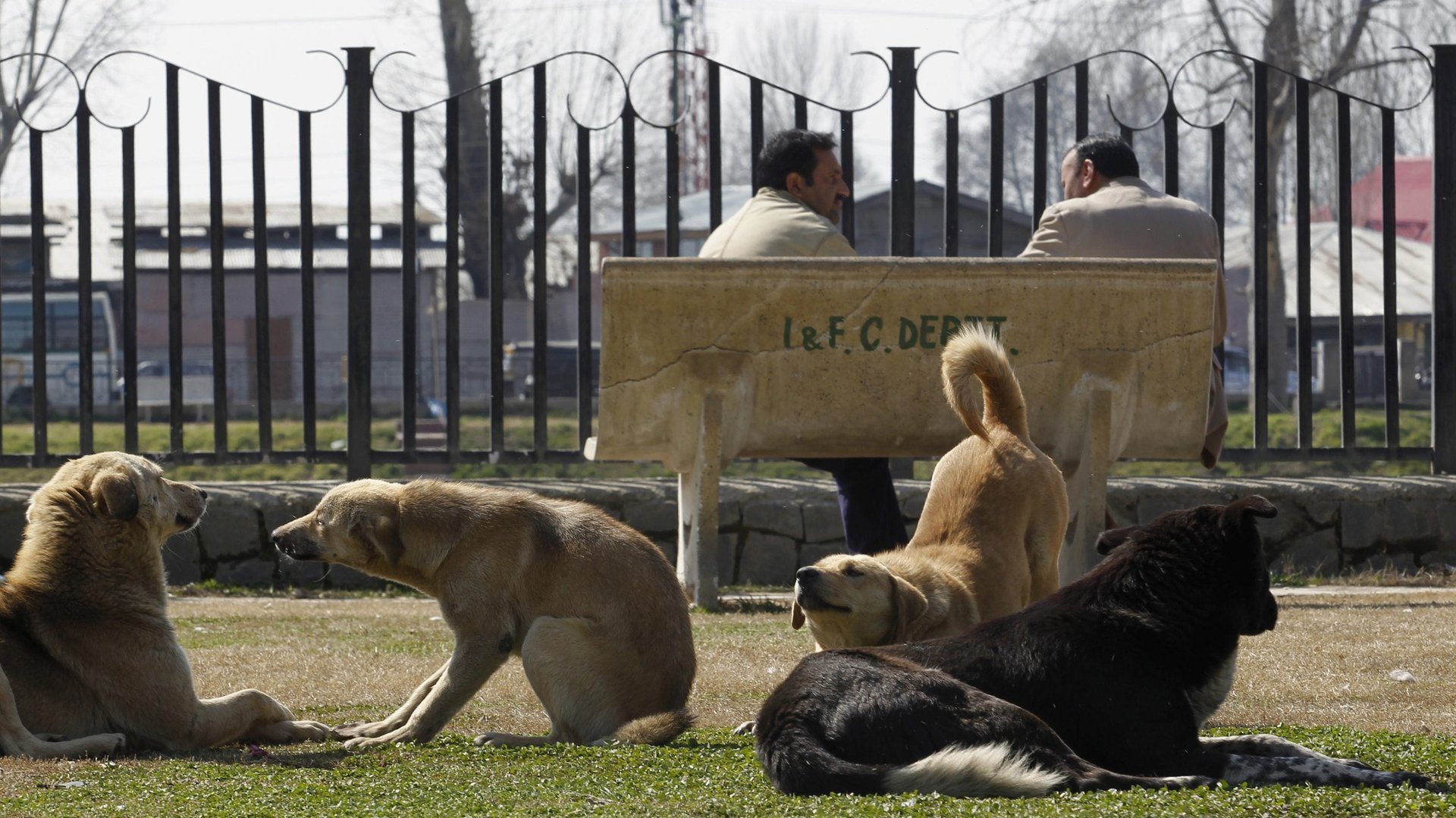Forget the perfect match, swipe right and find the paw-fect one in India now
Despite the rise of dating apps in India, a match made in heaven could remain elusive. So what’s the next best thing? Pets, you silly.


Despite the rise of dating apps in India, a match made in heaven could remain elusive. So what’s the next best thing? Pets, you silly.
The internet has spawned an entire ecosystem of animal lovers and shelter homes in the country.
On April 20, American dating app Tinder launched an initiative to promote pet adoption and rescue in India. The service, called #PawfectMatch, lets Tinder users adopt or foster animals, or donate or volunteer for them.
The company has partnered with Friendicoes SECA (Delhi), World for All Animal Care and Adoptions (Mumbai), RESQ (Pune), Charpaws Foundation (Delhi), Karma Foundation (Delhi), and Red Paws Rescue (Delhi) for this initiative.
Tinder hopes to cash in on its existing engaged user base to make the initiative effective. And looks like it’s working. “I know of a couple of shelters in New Delhi but wasn’t really sure about how to go through the process,” said 23-year-old management trainee Raghav Sikka. “Now with just a few right swipes, I can be a forever family to a pet that suits my requirements.”
In India, estimates on abandoned pets run into thousands. Up to 600 pets are left on the streets to fend for themselves annually, according to Delhi-based Friendicoes, of which only 100-150 get adopted. In Mumbai, India’s financial capital, the number runs up to 500, of which 300 are adopted and the rest languish in shelters, according to World for All, another animal welfare organisation.
What’s better is that Tinder isn’t alone on this front.
Social media to the rescue
Adopt A Pet, a 70,000-member strong Facebook group, provides re-homing and rescue options for stray dogs and cats across India, besides lending medical help for animals. The closed group is governed by strict community guidelines ensuring that the focus remains on helping animals.
“Any mention of buying and selling animals will get you deleted from the group,” reads Adopt A Pet’s description.
“The group is a great source of help. Once, while travelling to work, I came across a pup covered with fleas and a maggot wound. I posted on the group and within minutes, helped started pouring in. Some members even offered to take him to the hospital themselves,” said Samudra Gupta, an active member of the group.
Brands in pet-related businesses have also smelled an opportunity.
For instance, Dogspot.in, an online shopping portal that caters to canine needs, has an “adoption section” on its website. In a tie-up with various shelters and NGOs across the country, it provides an extensive database of pan-India rescued animals looking for care and forever homes.
Individuals can apply to adopt a pet by filling a simple questionnaire. “This initiative helps various shelters and activists expedite the process of screening and placing animals,” said the firm.
Activists say such initiatives have a huge impact.
“Tie-ups with such brands help us expand our reach. But there is still a lot of follow-up that needs to be done after. We do house checks to make sure that the pet will be accepted by the entire family, besides, we make sure whoever is adopting isn’t a breeder and is willing to sterilise the animal,” said Nidhi Sharma, an adoption counselor at Umeed for Animal Foundation, a Delhi based NGO.
Long way to go
Despite all this help, the number of animals in need has only been increasing.
“The most unlucky ones are stray animals. I myself have dealt with many instances where people have dumped dogs in gunny bags outside our (animal protection) shelters. Due to the trauma, they become aggressive and some even are diagnosed with depression,” said Sharma.
The condition of cats is even worse.
“There’s a stigma around cats in the Indian society. In some cultures here, they are considered bad luck. I have seen several orphaned kittens whose mothers had been beaten to death,” Taabir Hussain, who runs a pet boarding in Noida, Uttar Pradesh, told Quartz. “Even the preference rate of adoption compared to dogs is quite low for cats. I would say it’s 80:20.”
One of the biggest challenges, besides general ignorance, is funding.
“We are largely dependent on donations. By registering our NGO, the government also helps us financially. But the crunch always remains as the number of animals in need is constantly increasing,” said Sharma.
How reliable are donations?
“They aren’t. But someone has to believe. Friendicoes being saved is one such example,” Sharma said. In 2016, a lack of funds pushed Friendicoes to the edge of a shutdown. A Facebook post on this went viral and, within hours, an online campaign to save the non-profit was launched, raising over Rs5 lakh in just three days.
“Educating people is difficult, but nobody would deny it has become a lot simpler due to various social media platforms,” said Bhavya Gulati, a part-time volunteer with Noida-based animal shelter Paws for Cause.
There’s a lot to be done, but change’s coming. As they say, every dog has its day.